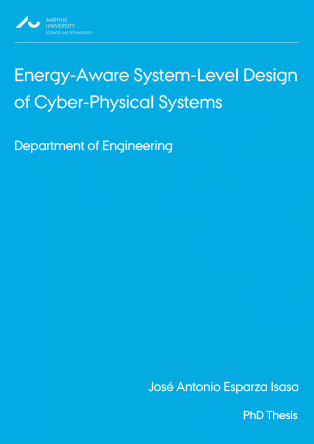Energy-Aware System-Level Design of Cyber-Physical Systems
Nøgleord:
Cyber-Physical Systems, Embedded Systems, System-Level Design, Energy-Aware DesignSynopsis
Cyber-Physical Systems (CPSs) are heterogeneous systems in which one or several computational cores interact with the physical environment. This interaction is typically performed through electromechanical elements such as sensors and actuators. Many CPSs operate as part of a network and some of them present a constrained energy budget (for example, they are battery powered). Examples of energy constrained CPSs could be a mobile robot, the nodes that compose a Body Area Network or a pacemaker. The heterogeneity present in the composition of CPSs together with the constrained energy availability makes these systems challenging to design. A way to tackle both complexity and costs is the application of abstract modelling and simulation. This thesis proposed the application of modelling at the system level, taking energy consumption in the different kinds of subsystems into consideration. By adopting this cross disciplinary approach to energy consumption it is possible to decrease it effectively. The results of this thesis are a number of modelling guidelines and tool improvements to support this kind of holistic analysis, covering energy consumption in electromechanical, computation and communication subsystems. From a methodological point of view these have been framed within a V-lifecycle. Finally, this approach has been demonstrated on two case studies from the medical domain enabling the exploration of alternative systems architectures and producing energy consumption estimates to conduct trade-off analysis.

